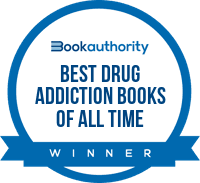6 Tools to Support Addiction Recovery in Isolation

Recovering addicts can never take sobriety for granted. Staying clean and sober can require work, especially during challenging times. But what if, in the midst of difficulties, you don’t have access to your recovery tools? Lockdown and isolation can be especially painful if you don’t have back-up recovery plans.
The coronavirus pandemic is not the only time you may find that you can’t get to recovery meetings or take a walk to boost your mood. Illnesses and injuries can make you as isolated as lockdown does. Even holidays and travelling can estrange you from your habitual recovery tools.
As someone with a chronic illness, I have become an expert in staying sober despite not being able to go out and do normal recovery stuff. Here’s what I do to stay on top of my recovery and mental health:
1. Journaling
When there is no-one to talk to, and nowhere to share your feelings, writing them down can help a lot. Committing your thoughts and feelings to pen and paper can give you relief. Reading back what you wrote can also help you to gain perspective.
While you can use technology to journal, longhand works better to stay in the flow of writing. I keep my journals to track my progress, which is an added bonus to using this tool. But you can destroy them if you’re worried about privacy. It doesn’t matter. The process is the most important thing.
2. Connection
Nowadays most people have phones and the internet, so they can still connect with recovery communities easily. But, imagine it’s the middle of the night and your internet goes down. What can you do without relying on other people or the web?
Research has shown that you don’t have to connect with people you know in real-time to feel connected. Listening to music by your favourite band, reading words written by your favourite author, or spending time with pets can all give us the sense of connection we need in recovery. Personally, I like to listen to Faith No More while reading Camus and stroking the cat, but whatever works for you...
3. Mindfulness
Mindfulness has so many uses it’s quite astonishing. I am grateful that I was taught it by an alcohol counsellor back in my early 20s. While classic mindfulness meditation can be used as a tool to train and calm the mind, you can add mindfulness to literally anything to monitor how you’re doing, and, if necessary, change course.
Mindfulness simply means becoming aware of what’s happening right now without being judgemental about what you discover. Becoming aware of your emotions, posture, thought patterns, and even your appetite, can give you early warning signs that you’re starting to get stressed. This gives you a chance to use a healthy remedy before your stress levels get out of control and you thi nk about drinking or drugging.
nk about drinking or drugging.
4. Exercise
While speed-walking is one of my favourite tools to dispel negative moods, when I can not get out, it is vital for me to do some exercise at home. Yoga is my go-to exercise during lockdown. The wonderful thing about yoga is that I can be as hardcore or as gentle as I need to with it on any given day. You can do yoga anywhere. Even if you’re stuck in bed or injured, there are always postures you can practice.
To get the endorphins pumping through your body, you can do cardio and resistance exercises no matter how limited your space. Shadow-boxing, recumbent leg cycling, push-ups, and sit-ups require no accessories or tools; just your body and your determination.
5. Creativity
Expressing yourself authentically keeps you mentally healthy. If you can’t say how you truly feel to anyone, then expressing your feelings in art, music, or creative writing can really help. While most people know me for my addiction recovery and self-help books, I also write short stories to deal with my personal “stuff” and trauma. Yeah, don't read them. They're kinda dark!
Being creative is also a fantastic tool for staving off boredom, which can hit really hard when you’re cooped up. If you’re not especially struggling with feelings, but are just bored, get creative in the kitchen, make a collage, paint your nails weird colours, or knit a jumper. It doesn't matter if you're not crafty or neat. (I'm not.) Enjoying the process is what matters most.
6. Positive Psychology
Mental tools are the best back-up to support your recovery because you literally only need your mind to do them. Techniques from positive psychology can help you to feel happier about life and yourself. Shifting your perspective just a little can change absolutely everything about how you feel.
Gratitude is one of my favourite positive psychology tools. During lockdown I’ve been mentally making a 5-point gratitude list most days and it always makes me smile. Visualising a safe, happy place and spending time there can help amid chaos. Reflecting on your strengths will also help you build resilience to deal with tough times.
If you haven’t started using recovery strategies that are accessible 24/7 no matter where you are, now is the ideal time to begin. You don’t know what the future holds, but you can prepare yourself to protect your sobriety if your life circumstances make your old tools inaccessible. And if your recovery is anything like mine, you’ll want to protect and cherish it always. Stay safe and stay sober. :)
by Beth Burgess, Therapist and award-winning author of The Recovery Formula, The Happy Addict, and Instant Wisdom.




